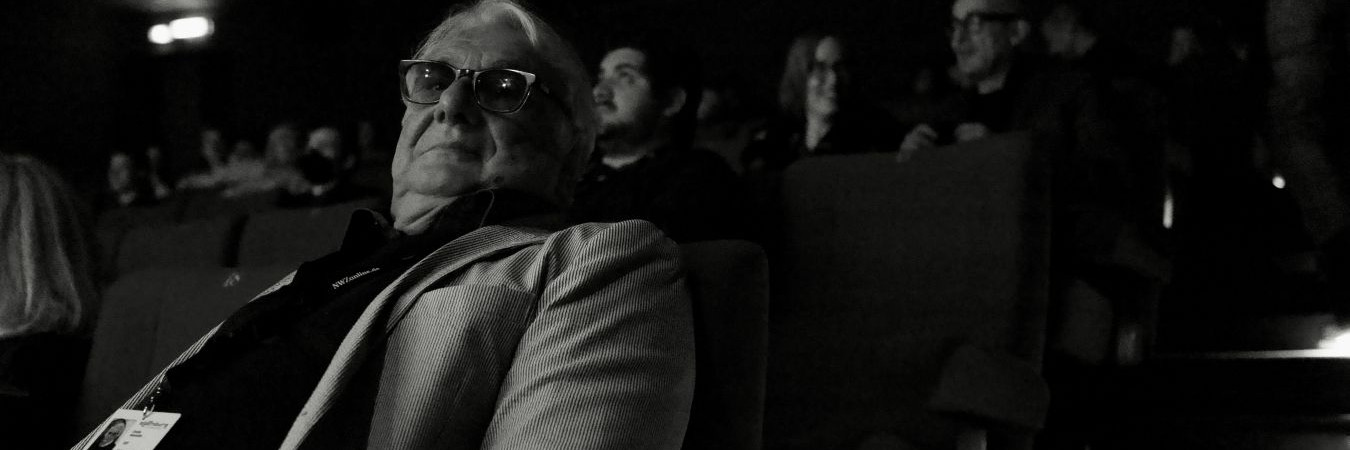100% Maverick
Retrospective Ovidio G. Assonitis
» All in all, I am sadly aware that my contributions to the horror genre are not of such historical relevance as, say, »The Exorcist« or »Psycho«. We‘re not talking masterpieces here, but I have put all my love and enthusi- asm into my films and I think it shows.« This is how producer, screenwriter and director Ovidio G. Assonitis himself described his works in an interview. But the sense of disappointment fades quite fast. What one remembers is the absolute openness with which the filmmaker, who was born in 1943 in Alexandria, talks about his work and ambitions. The absolute sincerity of his own assessment is only surpassed by the radical honesty that informs all of his films.
Honesty, that is a rather elusive category in film and art and often a brutally underestimated quality, even
if it was present at the very birth of cinema as a fairground attraction, since Georges Méliès was not just
the inventor of narrative film. With his stop-motion tricks and his fantastic visual worlds, he made cinema a dream machinery from its very beginning. This machinery quickly became part of a factory that increasingly plants wrong or fake dreams in our minds. In the course of its rapid commercialization, the form of cinema, which used to be called ›Flickers‹, lost its innocence and with it a lot of its honesty. And this has led to a loss of belief in the art of cinema which defines itself alone about the might of its images and edits, the dreams and nightmares that come alive in the darkness of the theatre.
But it is exactly this belief that enlivens Assonitis‘ creations. On one side, he is – like his American brother in spirit Roger Corman – a brilliant businessman who never forgot that films have to recoup their budgets and hopefully make a profit so that new films can be made. That‘s exactly the pattern that made the Italian film industry of the 1960s and 70s viable. An industry that he, as the producer of Umberto Lenzi‘s »Mondo Cannibale« (1972), Aldo Lado‘s atmospheric Giallo »Who Saw Her Die?« (1972) and »Laure« (1976), as well as the director of »Beyond the Door« (1974) and »Tentacles« (1977) essentially helped form. But, on the other side, Assonitis is also an heir to Georges Méliès who sees cinema primarily as a surreal sphere where everything is possible.
»Producer (and co-director) Ovidio Assonitis‘ horror films are usually characterized by clean camerawork and a good sense of offbeat ideas – »Madhouse«, »The Visitor«, »Amok Train«, »Curse II: The Bite«, »Sonny Boy« and »Red Riding Hood« are just waiting to throw conventions overboard and surprise us instead with quirky ideas that could be mistaken for cynicism if it weren‘t obvious that Assonitis takes pleasure in pushing boundaries and seeing where this or that fork might lead.« – Hard Sensations
Of course, there are commercial considerations behind his comparatively lower budgeted innuendos of s uccessful Hollywood productions that made Assonitis famous. But it would be wrong to reduce either
»Beyond the Door«, »Visitor«, »Tentacles« or »Piranha II: The Spawning« to just that. The early American blockbusters whose proximity he willingly sought for his work, were always high concept movies whose plot could be explained in two or three sentences.
This conscious reduction that is meant to bait an audience with a few buzzwords, is employed by Assonitis, but only to gloriously undermine it. He does not make films that can be easily retold. In the end, they defy any reduction and categorization. Their stories are red herrings that lose themselves in ecstatic visual compo- sitions and grandiose scenes that negate all laws of convenience. They therefore become a new school of viewing that allows us to leave behind all our previous impressions and prejudices behind.
The attacks of the giant octopus in »Tentacles« and the wild scenes of possession in »Beyond the Door«
are pure cinema, freed from all constraints and any kind of subtext. We get exactly what we are currently watching. And if we surrender to it, we are gifted with something that no perfectly produced blockbuster and no ambitious arthouse movie can give us. They give us back the innocence from the earliest films, way back when at the beginning of the 20th century, the cinema of fairgrounds and sensations. In Ovidio G. Assonitis‘ body of work, the fantasy of the cinema knows, once again, no limits. Nothing fences these celluloid dreams and nightmares in, enabling us to fly with them into a realm past reality; a realm that the art of cinema was invented for a long time ago.

